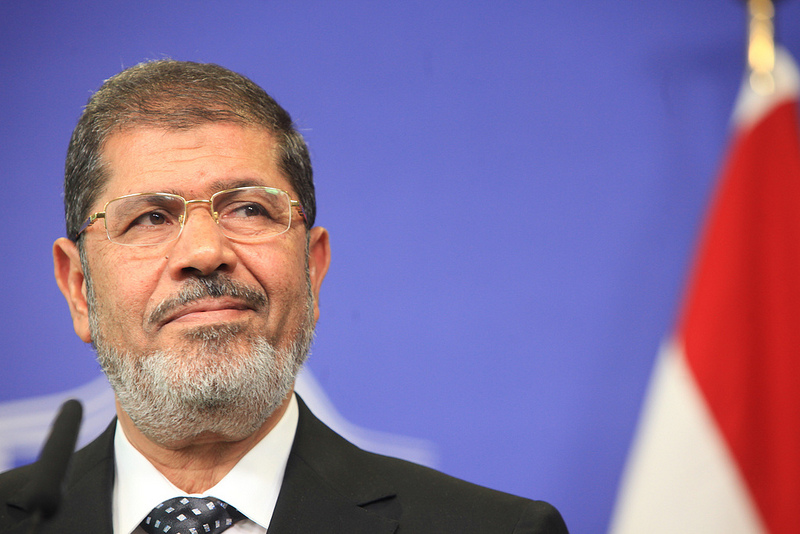Protests and episodes of violence continued throughout Egypt on Tuesday, July 2. In total, Reuters reported that seven died in Cairo and hundreds were injured throughout Egypt. Significant anti-Morsi crowds grew in front of the Qobba Presidential Palace in Cairo’s Heliopolis suburb, and throughout the day, large anti-Morsi crowds remained gathered in Tahrir Square and at the Ittihadiya Presidential Palace. Moreover, the stream of resignations coming out of Cairo continued as two ministers (Foreign Minister Mohammed Kamel Amr and Sports Minister El-Amry Farouk) and two spokesmen (presidential spokesman Ehab Fahmy and cabinet spokesman Alaa al-Hadidi) announced their departures.
However, it became clear Tuesday that the pro-government demonstrators were not going to fade away. The major pro-Morsi rallying site at Raba’a al-Adawiya continued to attract large crowds, then numbering around 100,000. The Muslim Brotherhood’s political wing called on supporters to defend their group’s “constitutional legitimacy” and to refuse to accept any coup. A senior Brotherhood member, Mohammed el-Beltagy, posted on Facebook that “[seeking] martyrdom to prevent the ongoing coup is what we can offer as a sign of gratitude to previous martyrs who died in the revolution.”
Looking outside Cairo, in Minya, a pro-Morsi group massed in front of a mosque that was known for being frequented by Gama’a al-Islamiyya members in preparation for a march to the city’s Palace Square to confront anti-Morsi protesters. Shots were reportedly fired from the group supporting Morsi into the camp of protesters. Police used tear gas to disperse both crowds. In Luxor, a relatively small group of anti-Morsi protesters was attacked after three days of demonstrations on July 2. They were assaulted by a pro-Morsi group in front of the provincial government’s headquarters. An unknown number were injured before security forces intervened to separate the parties. In Damietta, minor clashes between pro- and anti-Morsi crowds in al-Horreya Square were contained by police, and thousands more anti-Morsi protesters entered the square after the violence. In Beni Suef, anti-Morsi protesters retreated from a main square after their demonstration was approached by pro-Morsi factions. Reports of 26 more cases of sexual assault appeared today, bringing the total to 101 cases since June 30.
Seeing no appreciable sign of reform from Morsi, the Egyptian military released a plan for moving forward without the President’s participation. The plan included the suspension of the constitution and the creation of an interim executive council, composed mostly of civilian technocrats, who would manage the country until a new constitution could be drafted and new elections held. In response to the release of this roadmap and amid continued protests around the country, Morsi delivered a live television address to the people of Egypt. The 45-minute speech occurred near midnight and included warnings that disturbance of the democratic order would be disastrous for Egypt and that his “legitimacy,” which he mentioned over 50 times, must be preserved. Moreover, Morsi stated, “The price of preserving legitimacy is my life…Legitimacy is the only guarantee to preserve the country.”
Beginning before Morsi’s speech and continuing in the early-morning hours of July 3, a large street battle between pro- and anti-Morsi crowds at Cairo University saw the most deadly point of conflict prior to the July 8 clash at the Republican Guard headquarters. Ultimately, 16 people were killed and several hundred wounded in the violence, which saw both pro- and anti-Morsi demonstrators employing firearms. It is unclear to what extent Morsi’s speech to the nation, in which he offered his life in defense of his legitimacy, may have further incited the ongoing conflict and resulted in further deaths.
